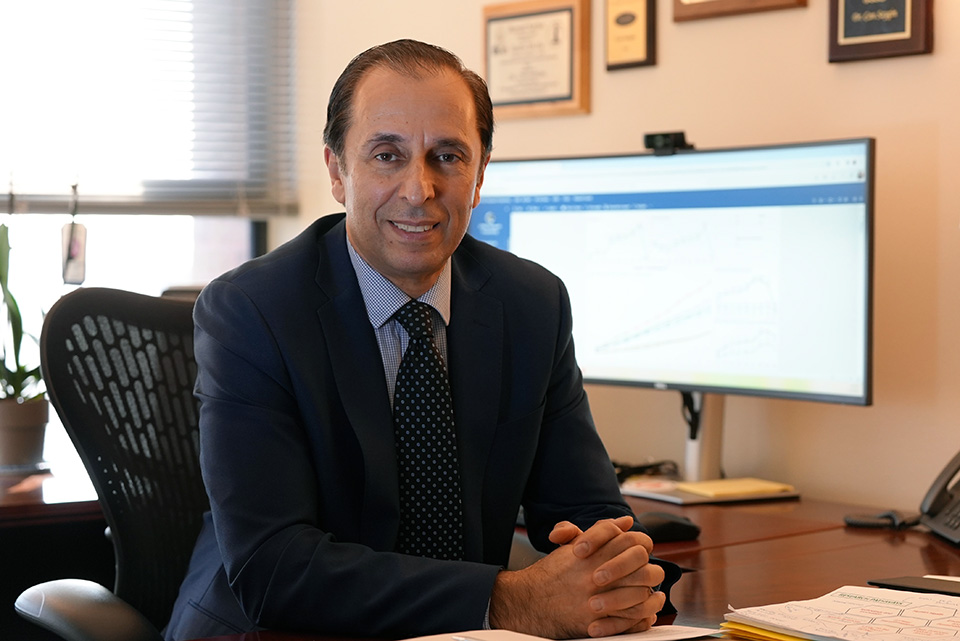By Maria Gonzalez
RIO GRANDE VALLEY, TEXAS – MARCH 1, 2024 – UTRGV has been awarded $5 million to develop and implement strategies that will help the university reach Carnegie “Very High Research Activity” status, also known as R1.
The grant, awarded by the Biden-Harris Administration, is part of a $93 million initiative funded under the U.S. Department of Education's Research and Development Infrastructure (RDI) program.
UTRGV is one of only two Texas institutions to receive the award; the other is Texas Southern University.
UTRGV President Guy Bailey highlighted the grant's role in the university's growth.
“This support is a landmark in UTRGV's journey to becoming a leading research institution,” he said, “and will help us continue to offer unmatched educational and research opportunities.”
He emphasized the broader impact of attaining “Target Carnegie R1” status.
“This initiative extends beyond achieving R1 status,” Bailey said. “It reinforces our commitment to our community in addressing regional challenges and contributing to the global economy.”
The four-year project runs from September 2024 through August 2028 and focuses on critical improvements to research infrastructure, research development and student support.
Dr. Can (John) Saygin, senior vice president for Research, dean of the Graduate College and principal investigator of the award, said it is a significant step in developing research capability and capacity to move UTRGV towards Carnegie R1 status.
“It marks a pivotal moment in our strategic expansion, including increasing successful grant proposals, increasing research expenditures, broadening our research base and strengthening our doctoral pipeline,” he said.
The funding not only will strengthen UTRGV's research infrastructure, but also will provide competitive graduate assistantships, support for postdoctoral researchers, and faculty-led research projects, which will further improve its Carnegie metrics, including total research expenditures and doctoral degrees.
“This grant serves as a catalyst for our 'Target Carnegie R1' plan, directly contributing to our strategic efforts in research development and enhancement,” Saygin said.
“By investing in these key areas, we are not only advancing our university's research capabilities, but also significantly enriching the academic and professional environment for our students, faculty and staff.”
Moreover, the grant will position UTRGV as a center for innovation, focusing on seven research pathways, from Human Health to Space Sciences to Societal Transformations.
UTRGV's faculty and research staff will benefit from a robust support system, including a Research Fellow program, tailored mentorship and grant writing services, all aimed at fostering research productivity and increasing funding opportunities.
The funding supports 11 institutions, including Historically Black Colleges and Universities (HBCUs), Tribally Controlled Colleges and Universities (TCCUs), and Minority-Serving Institutions (MSIs), and aims to upgrade research infrastructure and increase funding opportunities.
ABOUT UTRGV
The University of Texas Rio Grande Valley (UTRGV) was created by the Texas Legislature in 2013 as the first major public university of the 21st century in Texas. This transformative initiative provided the opportunity to expand educational opportunities in the Rio Grande Valley, including a new School of Medicine and a School of Podiatry, and made it possible for residents of the region to benefit from the Permanent University Fund – a public endowment contributing support to the University of Texas System and other institutions.
UTRGV has campuses and off-campus research and teaching sites throughout the Rio Grande Valley including Brownsville (formerly The University of Texas at Brownsville campus), Edinburg (formerly The University of Texas-Pan American campus), Harlingen, Weslaco, McAllen, Port Isabel, Rio Grande City and South Padre Island. UTRGV, a comprehensive academic institution, enrolled its first class in the fall of 2015; the School of Medicine welcomed its first class in the summer of 2016, and the School of Podiatric Medicine in the fall of 2022.

